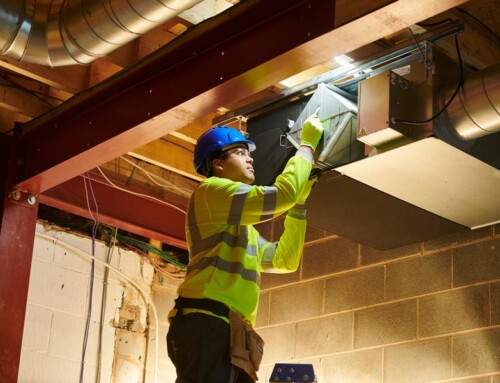Environmental Sustainability Courses: Build Green Skills Today

What Are Environmental Sustainability Courses?
Environmental sustainability courses are training programs designed to help individuals and organizations understand, implement, and improve practices that reduce their environmental impact. Whether you’re managing a facility, leading a cleaning team, or overseeing supply chains, these courses can help you embed sustainability into daily operations.
To explore education that supports greener operations in the cleaning and facility industries, visit the ISSA Sustainability Hub.

Why Take a Course on Environmental Sustainability?
With global pressure mounting to reduce emissions, conserve natural resources, and meet ESG goals, professionals across all industries need practical knowledge about sustainability. Here’s what you gain from these courses:
- Informed Decision-Making: Learn how to evaluate products, equipment, and procedures through a sustainability lens.
- Compliance and Certifications: Understand regulations and how sustainable practices tie into standards like LEED and ISO 14001.
- Operational Efficiency: Identify cost savings through waste reduction and resource optimization.
- Competitive Advantage: Businesses that prioritize sustainability stand out to customers, stakeholders, and investors.
What Do Environmental Sustainability Courses Cover?
Most sustainability courses are structured to meet the needs of professionals across varying levels of experience. Topics often include:
- Sustainability Fundamentals
- Climate change basics
- Life cycle assessments
- Carbon footprint calculations
- Green Cleaning and Product Evaluation
- Understanding ecolabels like Green Seal or Safer Choice
- Selecting environmentally preferable cleaning products
- Sustainable packaging and chemical management
- Energy and Resource Efficiency
- Reducing water and energy use
- Implementing HVAC and lighting upgrades
- Facility-wide efficiency planning
- Waste Management and Circular Economy
- Strategies to reduce, reuse, and recycle
- Composting programs in commercial spaces
- Circular design thinking for cleaning operations
- ESG Integration and Reporting
- How to align sustainability actions with ESG frameworks
- Setting, tracking, and reporting on sustainability KPIs
Who Should Take These Courses?
Environmental sustainability courses are valuable for:
- Facility managers looking to reduce operational impact
- Custodial and janitorial supervisors seeking green cleaning expertise
- Procurement officers sourcing sustainable products
- Executives and ESG teams aiming to meet sustainability goals
Courses are often flexible—available online or in-person, self-paced or instructor-led.
Benefits for the Cleaning and Facility Management Industry
The cleaning industry plays a key role in sustainability. From choosing chemicals to managing equipment and waste, frontline teams make daily decisions that affect environmental outcomes. By investing in environmental sustainability courses, organizations can:
- Reduce exposure to harmful chemicals
- Extend the life of assets through proper maintenance
- Enhance indoor air quality and occupant health
- Minimize landfill waste through better recycling practices
For more insights tailored to cleaning and maintenance professionals, check out the ISSA Sustainability Initiatives.
Tips for Choosing the Right Course
When selecting a sustainability course, consider:
- Certification Opportunities: Does the course provide CEUs or recognized credentials?
- Industry Focus: Is the course tailored to your sector, such as building services or health care cleaning?
- Instructor Expertise: Are instructors qualified in sustainability and practical implementation?
- Up-to-Date Content: Does the course reflect current standards and regulations?
You may also want to look for programs that support alignment with certifications like LEED or WELL Building Standard.
Getting Started with Environmental Sustainability Courses
The demand for sustainability knowledge continues to grow. Organizations are increasingly expecting their teams to be fluent in eco-conscious practices and procedures. Whether you’re new to the topic or looking to level up your expertise, environmental sustainability courses offer a pathway to lead with purpose.
You don’t need to have a scientific background to get started. Many courses are designed with practical application in mind, focusing on things like:
- Green cleaning protocols
- Product selection
- Waste and energy reduction
- Policy implementation
If you’re part of the cleaning or facilities industry, start by exploring the tools and learning options available on the ISSA Sustainability Hub. It’s a great starting point for understanding industry standards and accessing training aligned with sustainable operations.
Final Thoughts
Environmental sustainability isn’t just a trend—it’s a professional imperative. Courses that focus on sustainability empower individuals and teams to make better decisions, save money, and reduce harm to the planet. Whether you manage a single facility or lead a national team, education is the foundation of long-term impact.
















